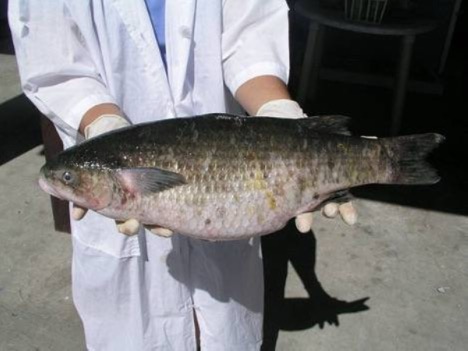BY LEANDER C. DOMINGO

TUGUEGARAO CITY (October 4, 2025)—The Bureau of Fisheries and Aquatic Resources (BFAR) in Region 2 (Cagayan Valley) has announced a temporary ban on catching ludong fish, also known as lobed river mullet, in the Cagayan River from Oct. 1 to Nov. 15, 2025.
This 45-day closed fishing season aims to protect the ludong during its spawning period, and allow the species to reproduce and maintain its population.
BFAR Regional Director Angel Encarnacion emphasized the importance of giving ludong time to spawn in the mouth of the Cagayan River during this season.
“The ban’s primary purpose is to increase the number of ludong and provide pregnant ludong a chance to lay their eggs, ensuring an adequate supply of fish for future generations,” Encarnacion said.
To enforce the ban, Arsenio Banares, BFAR-2 chief of the Fisheries Management Regulatory and Enforcement Division, said it will conduct information drives, market denial, stricter monitoring, and patrolling of the river.
Banares also warned that not only catching ludong is prohibited but also buying, selling, exporting and catching spawning mature fish. Violators will face penalties, including imprisonment and fines.
Penalties for catching Ludong during the closed season, as outlined by BFAR Administrative Circular 247, include potential imprisonment of six months and one day to six years, a fine of P6,000, forfeiture of the catch and equipment, and cancellation of licenses.
However, catching spawning ludong carries a more severe penalty of six months and one day to eight years imprisonment, a fine of P80,000, forfeiture of catch and equipment, and revocation of the license.
The ludong, also known as the “President’s Fish,” is a culturally iconic species in the Philippines, particularly in the Cagayan Valley region which comprises the provinces of Cagayan, Isabela, Nueva Vizcaya, Quirino and the island province of Batanes.
Due to its high market value and declining population, conservation efforts are crucial to prevent its extinction.
Encarnacion said that the BFAR’s conservation initiative includes research and development, conservation and protection, and intensified information and education campaigns.
“By working together, the government and local communities can ensure the long-term sustainability of ludong populations and preserve this valuable natural resource for future generations,” he said.
